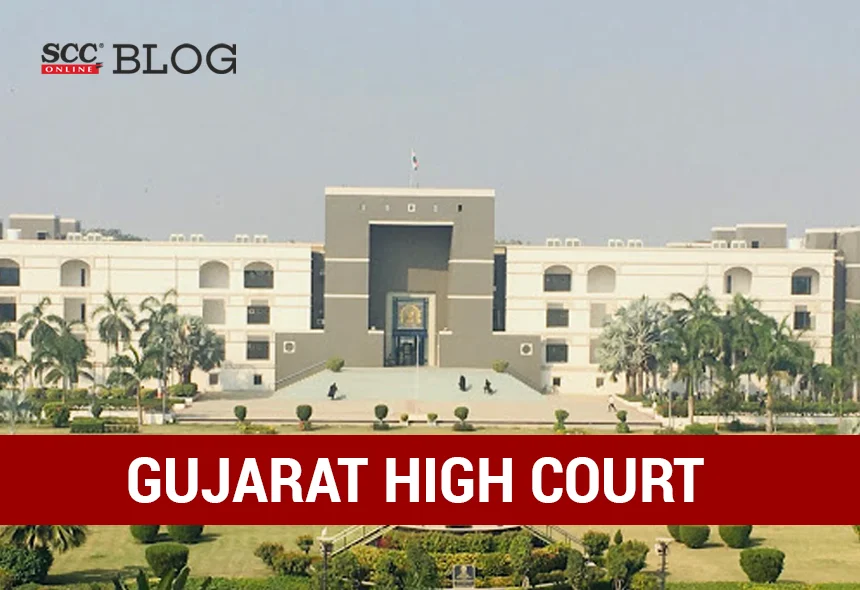Gujarat High Court: While hearing an appeal filed by appellant-wife against the Judgment and Order of the Family Court, Gandhinagar, wherein divorce petition of the respondent-husband was allowed, the Division Bench of Ashutosh Shastri* and Divyesh A. Joshi, JJ., dismissed the appeal and upheld the Judgment of the Family Court, granting the decree of divorce.
In the matter at hand, the husband had filed a suit for divorce under the Section 13(1)(a) of the Hindu Marriage Act, 1955 (‘the Act’). The case of the husband was that from the very beginning, the wife was behaving as if she was forced to marry, and that she had not married out of her will. It was alleged that she was not interested in their relationship. It is also alleged that after the birth of the baby boy, the wife was not at all willing to come back to her matrimonial home and though the husband tried to bring her back to the matrimonial home, she did not come. It was alleged that since 2014, they have been residing separately and there was no relationship between them. On the other hand, as per the case of the wife, she was residing at her parental home since 2014 due to physical and mental torture meted out to her by her in-laws. It was also stated that her husband was very supportive earlier, but he did not come to meet her after the birth of their son. After hearing the petition at length, the Family Court had allowed the petition on 30-11-2017. Therefore, aggrieved and dissatisfied with the said Judgment of the Family Court, the wife had preferred the present appeal before the Court.
The Court noted that the marriage between the parties was solemnized on 22-11-2009 and one baby boy was born on 18-11-2011. The Court also noted that the application for dissolution of marriage was preferred by the husband, on two grounds, that the wife had deserted the husband in terms of Section 13(1)(ia) and cruelty in terms of Section 13(1)(ia) of the Act.
It was also noted by the Court that after service of notice, the wife had filed a complaint under Section 498-A and 354 of the Penal Code, 1860 (‘IPC’) against the husband and in-laws. The husband had filed a quashing petition before the Court and considering the allegations and other material available on record, the Court had quashed the said complaint. The said order was also challenged by the wife before the Supreme Court by preferring a Special Leave Petition, which was dismissed. The Court said that it was also an admitted position of fact that wife had inflicted blow of tongs (Saanasi) on the head of her mother-in-law in the absence of her husband, due to which she became unconscious. When the mother-in-law was shifted to the hospital for treatment, she was given specific history that injuries were caused by the wife of her son. The said fact was admitted by the wife in her cross-examination. Therefore, the Court said that on the basis of the set of evidence, the issue pertaining to temperament and nature of wife was proved by the husband by leading very cogent and convincing evidence. Not only that, but it was also an admitted fact that since then the wife was residing at her parental home.
Placing its reliance on Durga Prasanna Tripathy v. Arundhati Tripathy, (2005) 7 SCC 353 and the evidence on record, the Court said that it was clear that the parties were residing separately since August 2014 and the desertion was for more than eight years and therefore, there was an irretrievable breakdown of marriage between the appellant and the respondent. Further, the Court said that marriages are made in heaven, both the parties were residing separately for more than ight years, and they have crossed the point of ‘no return’. The Court also said that considering the allegations and counter allegations levelled by rival parties against each other, it was found that they had reached a stage from where they cannot reconcile themselves, bury their differences and live together forgetting their past as a bad dream.
Therefore, the Court dismissed the present appeal and confirmed the Judgment and Order of the Family Court, granting the decree of divorce. The Court, however, directed the husband to pay Rs. 15 Lakhs in alimony to the wife within the period of three months for the well-being of the child.
[Dipti v. Pradhot Natvarbhai Vasaiya, 2023 SCC OnLine Guj 1832, Decided on 21-06-2023]
Judgment Authored by: Justice Ashutosh Shastri
Advocates who appeared in this case :
For the Appellant: Advocate PP Majmudar;
For the Respondent: Advocate Abhishek M Mehta.








